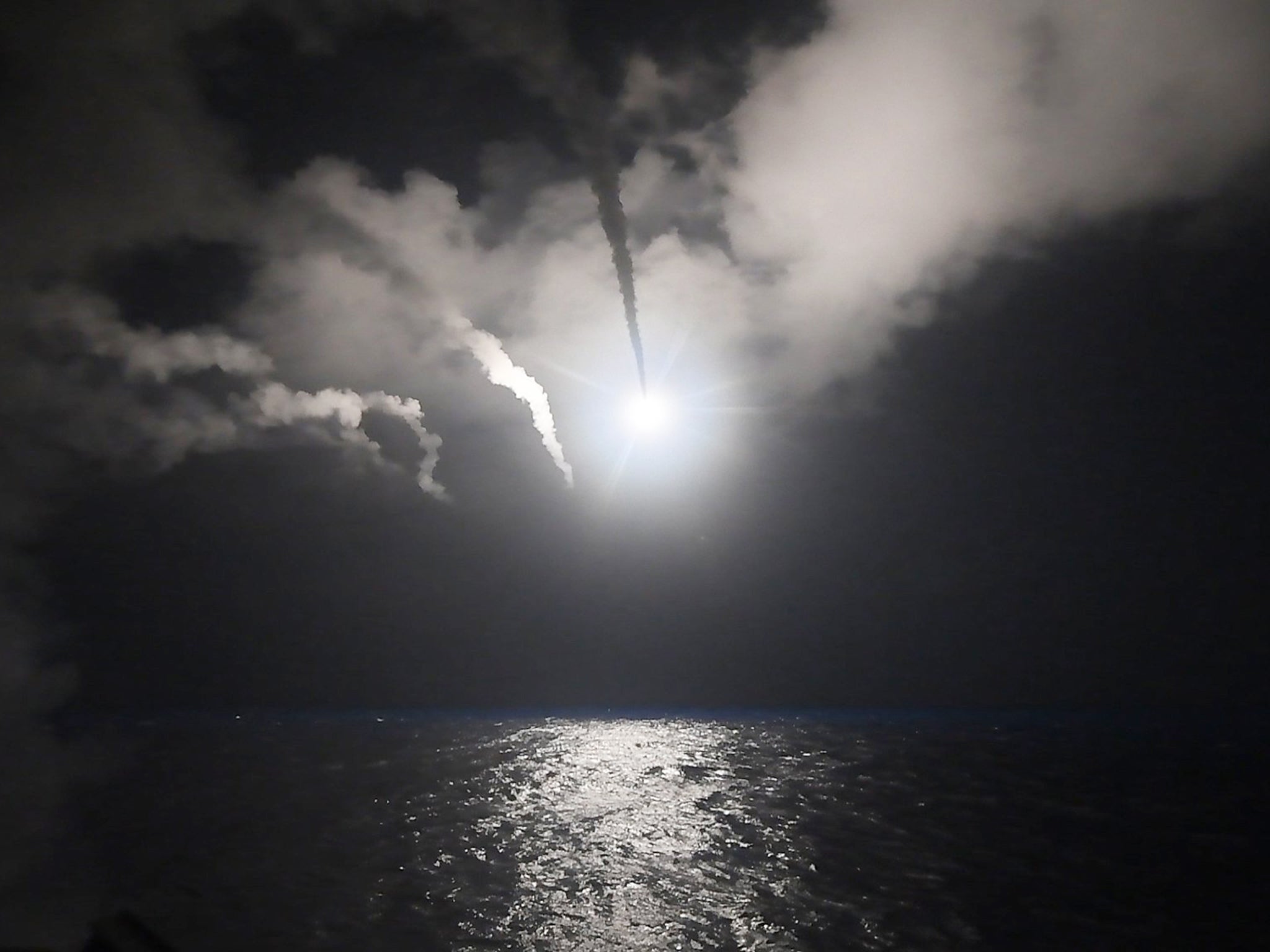The US air strikes say more about the Vladimir Putin-Donald Trump relationship than the Middle East
The pictures out of the town of Khan Sheikhun are terrifying, but Trump and his Secretary of State Rex Tillerson have the thorny problem of working out how to deal with Russia


So did Bashar al-Assad use gas? The Russians must know. They are in the air bases, in the ministries, in the military headquarters. And if they say the Syrians did not use gas, then they had better be sure. The Russians had advance warning of Trump’s 59 Cruise missiles. Many hours of warning – not the one hour that Washington claims – and would have ensured that Syrian jets were way out of the air base. Russians are not to be killed in the Syrian war; their presence would have meant casualties.
Did the Syrian army, a trifle arrogant, perhaps, after their capture of eastern Aleppo decide to try to bring the war to an end in a quick way? The question must be asked. In the past, villages in which army officers lived – and in which their families lived – have been gassed. The Syrians blamed the Turks for giving the gas to Jabhat al-Nusra, the al-Qaeda affiliate in Syria, and Isis. The Russians said earlier gas attacks on Damascus used chemical components shipped via Turkey to Syria from Libya.
Ever since the First World War, when gas made its appearance at Ypres – and in Gaza, when it was used by General Allenby’s forces on the Ottoman Turks – chemical weapons have exerted a horror which even Hitler did not dare visit upon the Allies. But what did Saddam do? He used chemical weapons upon the Kurds at Halabja; indeed, his voice could be heard describing it in the Baghdad court after he himself was hanged. But would Syrian troops use such weapons against their own people?
The pictures seem to be decisive. Terrifying. Ghastly. But we must also remember the 250,000 civilians of eastern Aleppo, who became 150,000 and then 90,000. The Syrian war has become the most poorly reported conflict in the world. How many dead has it caused? 400,000? 450,000? Or 500,000, the latest figure. How do we complete the figures for death by gas? To believe the Syrian government? When the last gas attack in Damascus took place, the UN, in a brief paragraph in the middle of their subsequent report, said that the chemical shells had been “compromised” by being moved between different locations.
But then we come to the Russians. They underwrote the Syrian removal of all gas weapons. They saved Obama’s pitch after he had threatened – and then withdrew – the warning of an air attack on Syrian chemical weapons. Now the Russians have seen what Trump will do when he believes (if he does believe) the use of gas attacks. And the Russians, so I’m told, knew all about the US raid – and long before it occurred. Would they really have left any Syrian aircraft on the airbase? Would they have left any such weapons at the runway? Or in hardened bunkers?
In reality, the US attack on Syria says more about Trump-Putin relations than about America and the Middle East. That’s a problem for Rex Tillerson to work out. And Bashar al-Assad, of course. Be sure, the phone calls between Damascus and Moscow will last long into the night.
Bookmark popover
Removed from bookmarks